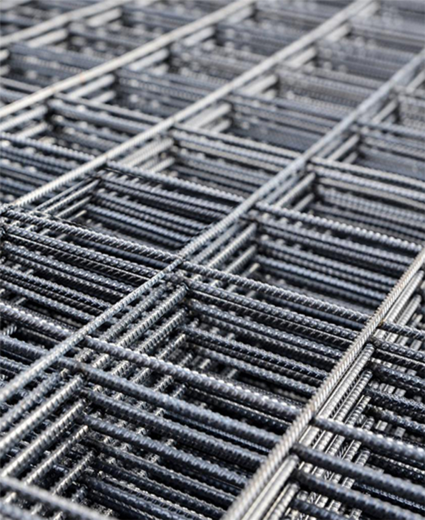Dec . 13, 2024 13:43 Back to list
steel wire mesh for concrete
Steel Wire Mesh for Concrete Enhancing Strength and Durability
Concrete is one of the most widely used construction materials in the world, known for its versatility and strength. However, concrete alone can be susceptible to cracking and structural failures, especially under tension. To address these vulnerabilities, steel wire mesh has emerged as an essential component in enhancing the performance of concrete structures. This article explores the benefits, applications, and considerations of using steel wire mesh in concrete construction.
Understanding Steel Wire Mesh
Steel wire mesh consists of a grid of steel wires that are welded or woven together to form a network of open spaces. This mesh can vary in size, shape, and gauge, depending on the specific requirements of the project. The two most common types of steel wire mesh used in concrete are welded wire mesh and woven wire mesh. Welded wire mesh is made by welding the intersecting wires at their junctions, providing greater strength and stability. Woven wire mesh, on the other hand, is created by interlacing the wires, offering flexibility for various applications.
Benefits of Using Steel Wire Mesh in Concrete
1. Enhanced Tensile Strength One of the primary advantages of incorporating steel wire mesh into concrete is the significant increase in tensile strength. Concrete has excellent compressive strength but is weak in tension. When steel wire mesh is embedded within the concrete, it helps to distribute loads evenly and resist cracking, particularly in areas subjected to tension forces.
2. Crack Control Cracking is a common issue in concrete due to shrinkage, temperature fluctuations, and applied loads. Steel wire mesh acts as a reinforcing element, controlling the width and distribution of cracks. By confining shrinkage, it minimizes the formation of cracks, which can compromise structural integrity and aesthetic appeal.
3. Improved Durability The presence of steel wire mesh in concrete significantly increases the overall durability of the structure. It enhances resistance to impact, wear, and weathering, thus extending the lifespan of concrete elements. This durability is particularly beneficial in environments exposed to moisture, chemicals, and fluctuating temperatures.
4. Cost-Effectiveness While the initial investment in steel wire mesh may seem higher than other reinforcement methods, it can lead to cost savings in the long run. The reduction in cracking and structural failures translates to lower maintenance and repair costs. Additionally, steel wire mesh allows for faster construction times, as it simplifies the reinforcement process.
Applications of Steel Wire Mesh in Concrete
Steel wire mesh is utilized in various concrete applications, showcasing its versatility
steel wire mesh for concrete

- Slabs and Floors In residential, commercial, and industrial construction, steel wire mesh is commonly used in slabs and floors to enhance strength and prevent cracking. It is particularly beneficial in large, flat areas where stress concentrations might occur.
- Walls and Foundations The mesh is often integrated into wall systems and foundations, providing additional support and stability. In retaining walls and basement walls, steel wire mesh helps resist hydrostatic pressure and other lateral forces.
- Paving and Driveways For concrete pavements and driveways, steel wire mesh helps manage the stresses caused by heavy loads and traffic
. This reinforcement is crucial in preventing cracking and ensuring a long-lasting surface.- Precast Concrete Products Steel wire mesh is commonly used in precast concrete elements, such as panels, blocks, and beams, where uniform strength and performance are critical.
Considerations When Using Steel Wire Mesh
When incorporating steel wire mesh into concrete, there are some essential considerations to keep in mind
1. Proper Placement The effectiveness of steel wire mesh relies heavily on correct placement within the concrete. It should be positioned within the middle third of the concrete section to maximize tensile strength and prevent movement during pouring.
2. Corrosion Resistance Since steel wire mesh is prone to corrosion, it's crucial to consider protective coatings or using epoxy-coated or galvanized mesh, especially in environments where moisture or chemicals are present.
3. Design Specifications The design of the structure should dictate the type and size of wire mesh used. Engineers must consider factors such as load requirements, environmental conditions, and overall structural design.
Conclusion
Steel wire mesh plays a vital role in enhancing the strength, durability, and overall performance of concrete structures. Its ability to control cracking, improve tensile strength, and reduce maintenance costs makes it an invaluable asset in construction. As the demand for resilient and long-lasting concrete increases, the use of steel wire mesh will continue to be a preferred solution among architects, engineers, and construction professionals.
-
Reinforcing Mesh: Core Material of the Construction Industry
NewsJul.07,2025
-
Welded Wire Fabric Reinvented for Modern Projects
NewsJul.04,2025
-
Superiority of Stainless Steel Woven Mesh
NewsJul.04,2025
-
Key Types of Razor Wire and Their Applications
NewsJul.04,2025
-
Durable Metal Fence Types for Security
NewsJul.04,2025
-
Best Materials for Livestock Fence
NewsJul.04,2025
products.







